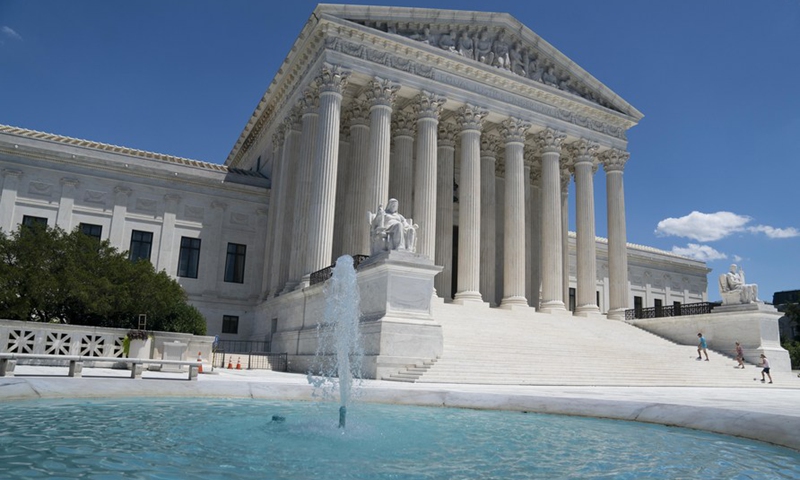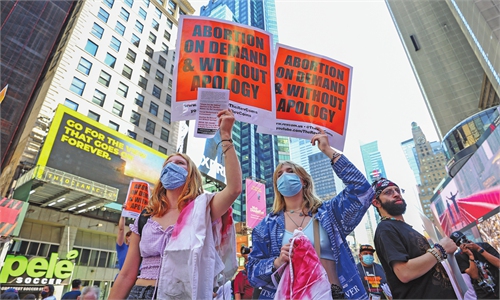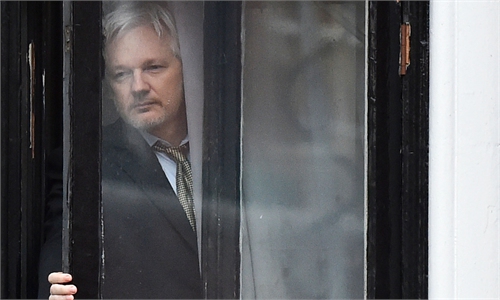Top US court hears climate case
New United Nations’ report in stark warning over inaction

Photo taken on July 14, 2020 shows the U.S. Supreme Court building in Washington, D.C., the United States. (Xinhua/Liu Jie)
A divided US Supreme Court heard arguments on Monday in an environmental regulation case with potentially far-reaching implications for the Biden administration's fight against climate change.
The high-stakes case concerns the authority of the Environmental Protection Agency (EPA) to regulate greenhouse gas emissions from coal-fired power plants, which produce nearly 20 percent of the electricity in the US.
As the Supreme Court was hearing arguments, the United Nations issued a landmark report containing dire warnings over climate change.
While the three liberal justices on the nine-member Supreme Court appeared largely to support arguments that the EPA was operating within its brief, several of the conservative justices appeared skeptical.
"This agency is doing greenhouse gas regulation," said Justice Sonia Sotomayor, one of the liberal members of the court. "This is in, you know, exactly in its wheelhouse."
Jacob Roth, arguing for The North America Coal Corp., said the EPA is going beyond its remit.
"The agency is asking questions like: Should we phase out the coal industry? Should we build more solar farms in this country? Should we restrict how consumers use electricity in order to bring down emissions?"
"Those are not the types of questions we expect the agency to be answering," Roth said.
In 2007, the Supreme Court, by a narrow majority, ruled that the EPA has the power to regulate carbon dioxide emissions from power plants under the Clean Air Act of 1970.
In 2015, Democratic president Barack Obama unveiled his Clean Power Plan, which was intended to combat global warming by reducing carbon dioxide emissions from coal- and gas-burning plants and shifting energy production to clean sources such as solar and wind power.
The Clean Power Plan was blocked in the Supreme Court in 2016 and repealed by former Republican president Donald Trump, who replaced it with his own industry-friendly Affordable Clean Energy (ACE) rule.
Trump, a climate change skeptic hostile to government regulation of industry, also nominated three justices to the Supreme Court, giving conservatives a 6-3 majority.
The US Court of Appeals for the District of Columbia threw out Trump's ACE rule on the last day of his presidency, setting the stage for the case currently before the Supreme Court: West Virginia vs EPA.
West Virginia and several other coal-producing states asked the Supreme Court to intervene and define the powers of the EPA. The case has also been embraced by opponents of strong government regulatory authority.
AFP



